| |  | | | Victory for Israel Means Defeating Hamas; European Antisemitism; Texas and EPIC By Winfield Myers ● Oct 17, 2025 Smart Brevity® count: 9 mins...2321 words Rafael Bardaji argues that, while celebration of the hostages' return is appropriate, real victory for Israel can't come until Hamas is defeated. In a second article, Bardaji analyzes what he calls Israel's five wars, from Hamas to PR. He attributes the emergence of a stronger and more prosperous Israel to President Trump and, even more so, Benjamin Netanyahu. Of the massive protests in Europe falsely accusing Israel (again) of "genocide" in Gaza, Michael Rubin writes that "European hypocrisy has rarely been on greater display." Europeans should "look in the mirror and recognize that they have changed very little since a century ago." Dexter Van Zile reports on the Texas Attorney General's intensified investigation of the East Plano Islamic Center (EPIC), which critics charge "constitutes a form of 'Islamist enclave' masked as a suburban community." EPIC's leader, Yasir Qadhi, has a record of expressing antisemitism, Holocaust revisionism, and refusing to condemn Hamas. We also feature articles by Aymenn Jawad Al-Tamimi, Elizabeth Samson, Joe Adam George, and Jules Gomes. | | Time for Joy in Israel, Not Complacency  By: Rafael Bardaji With the return of 20 Israelis kidnapped by Hamas, Israel marks a significant milestone in the Gaza conflict. Why it matters: This achievement reflects Israel's strategic objectives in weakening Hamas's military threat. The big picture: Israel's goal to remove Hamas as Gaza's ruling authority remains, awaiting further developments. -
Real peace will only come after Israel achieves a clear victory—or, if you prefer, after the complete defeat of its enemies. -
As difficult as it is to acknowledge, what remains of Hamas has yet to accept its defeat. For now, it still controls the weapons necessary to regain power in Gaza. -
More importantly, it continues to cling to the belief that its sole mission is to destroy the State of Israel. Policy implications: -
Security enforcement: Israel should push for international guarantees to enforce the disarmament of Hamas and ensure IDF's right to operate a security strip within Gaza. -
Education reform: Advocate for international aid to support a reformed Palestinian education system that discourages incitement and promotes coexistence. -
Reconstruction strategy: Collaborate with global partners to focus on both infrastructure rebuilding and political stabilization in Gaza. -
Regional alliances: Strengthen alliances with neighboring countries to support a sustainable peace framework and counter Hamas's influence in the West Bank. What's next: Israel's defense strategy should focus on maintaining military supremacy and addressing internal and external threats, such as the presence of Hamas in the West Bank and its 700,000 supporters. To read the full article, click here. | | ICYMI – The Forum Roundtable: Islamism, Israel, and the Decline of Western Civilization  Across the West—from North America to Europe and Australia—antisemitism is rising alongside the spread of radical Islam. For Islamists, Jews are the first target, Christians the next, and Western civilization the ultimate prize. Yet Western leaders remain blind—or complicit—through permissive immigration, weak enforcement, and speech laws that hasten decline. As Israel fights for its survival, can the West still defend the Judeo-Christian foundations that once made it strong? Josh Hammer is the senior editor-at-large at Newsweek and the author of Israel and Civilization: The Fate of the Jewish Nation and the Destiny of the West. Danielle Pletka is a writer and a distinguished senior fellow in Foreign and Defense Policy Studies at the American Enterprise Institute. Lee Smith is a journalist and columnist at Tablet Magazine and the author of Disappearing the President: Trump, Truth Social, and the Fight for the Republic. Lauri Regan is vice president and treasurer of Scholars for Peace in the Middle East.
*Note: a previous edition of the Dispatch included a link to an incomplete recording of this Roundtable. The problem has since been resolved.
To watch the full podcast episode, click here. | | 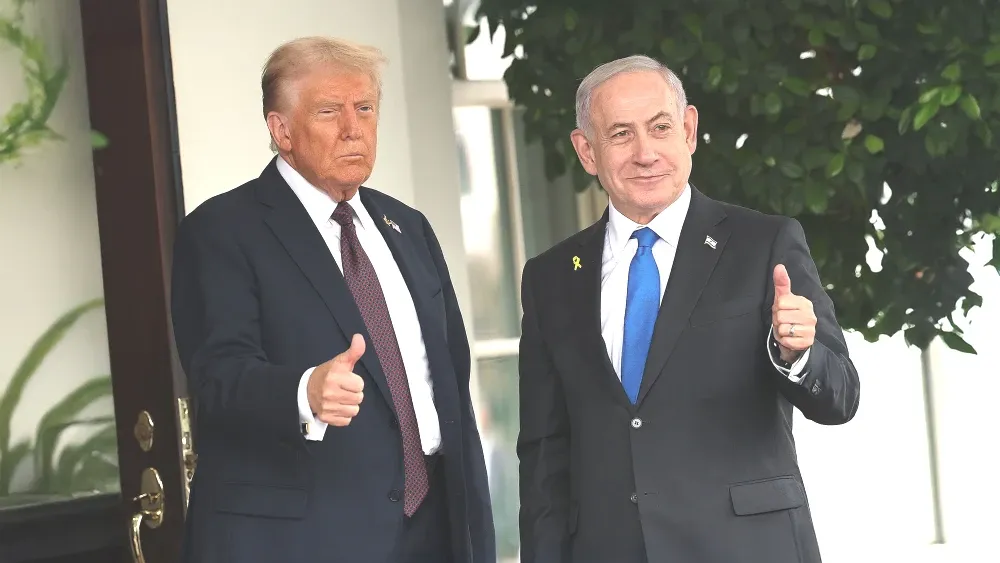 By: Rafael Bardaji The ceasefire in Gaza and the return of hostages is a cause for joy, but these goals are due to the determination of the American president but, above all, to the obstinacy and vision of the Israeli prime minister, Benjamin Netanyahu, although no one wants to admit it. Why it matters: Netanyahu's strategic vision has been pivotal in overcoming diplomatic hurdles and military challenges. Five simultaneous wars: Israel navigated complex fronts, from direct military engagements to diplomatic skirmishes. -
Direct enemies: Israel successfully neutralized threats from Hamas, Hezbollah in Lebanon, and Iranian proxy forces, dismantling Iran's nuclear and missile capabilities. -
Allies' restraints: Despite pressures from the Biden administration and European governments, Israel maintained its strategic autonomy, ensuring continuous military supply lines and support. -
Internal tensions: Navigated discord within the IDF, aligning military objectives with political directives to achieve operational goals. -
Political strife: Managed domestic political opposition, which leveraged the humanitarian crisis to challenge Netanyahu's leadership. -
Global narrative: Countered Hamas's media strategy that aimed to delegitimize Israel, reinforcing the narrative of Israel's right to self-defense. Policy implications: -
Israel must strengthen military readiness and foster international cooperation for Gaza's reconstruction and political stabilization. -
The emphasis should be on reforming Palestinian education to promote peace and reduce radicalization. What's next: With a stronger Israel emerging, there is potential for a new Middle East marked by peace and prosperity. To read the full article, click here. | | Israel Now Forum 2025 — Featuring Gregg Roman The Israel Now Forum returns to North Texas for a full-day event uniting experts, advocates, and community members in support of Israel. When & where: Sun, Nov. 16, 2025 • 8:30 AM–5 PM • Plano, TX This immersive program helps attendees deepen their understanding of Israel's challenges and opportunities while engaging directly with thought leaders. Gregg Roman, Executive Director of the Middle East Forum, joins a lineup including Gilad Erdan, Yoram Ettinger, and other notable voices. Details: -
Choose from 25+ expert sessions and small-group discussions -
Create your own agenda around security, diplomacy, and media advocacy -
Tickets: $36 adult / $18 student (includes kosher lunch) -
Advance registration required To register, click here. | | Israeli Arrests in Southern Syria: A Recent Case in the Yarmouk Basin 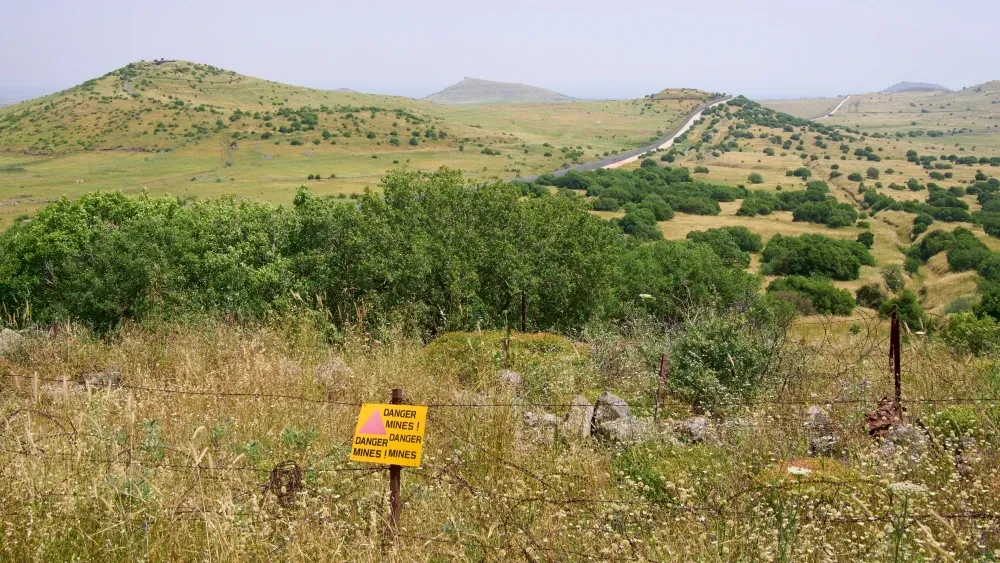 By: Aymenn Jawad Al-Tamimi Israeli forces have arrested individuals in southern Syria, stirring controversy and local unrest. Aymenn Jawad Al-Tamimi focuses here on the case of Muhammad Muhanna al-Baridi and show why it is unlikely that these arrests are random or merely aimed at intimidating local populations. Why it matters: The recent arrest of al-Baridi highlights Israel's security concerns in the region. Local reactions: Social media calls for the release of al-Baridi and others, citing fears among families and local populations. Israeli perspective: Despite criticisms, Israel's actions aim to preempt threats from groups perceived as hostile. Strategic implications: While some view Israel's tactics as overly aggressive, the strategy underscores a broader security agenda. To read the full article, click here. | | Europe's Anti-Israel Protests Expose Its Antisemitism and Racism 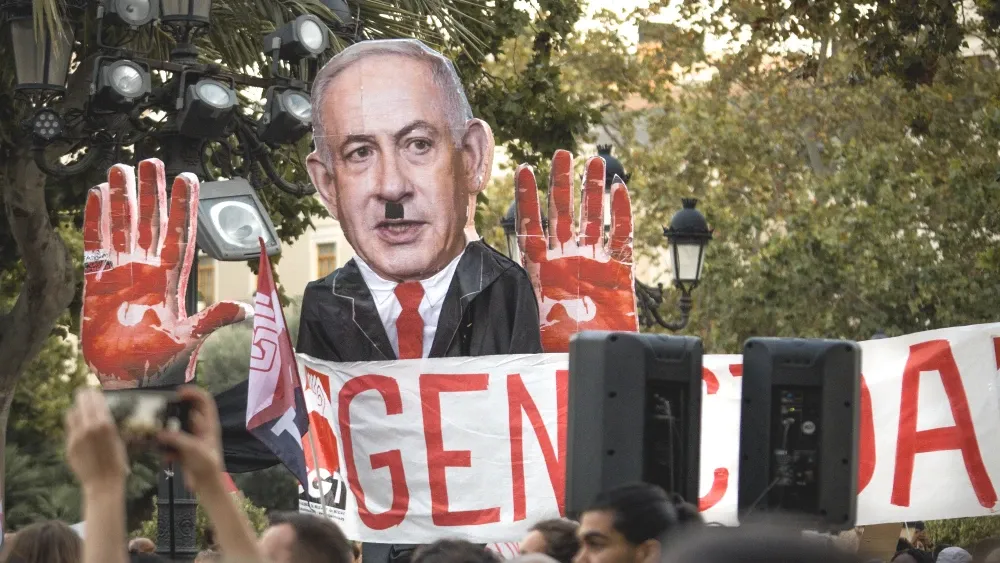 By: Michael Rubin From Dublin to Rome, the streets of Europe swarmed with protesters decrying Israel's alleged genocide against Palestinians — a stark display of selective outrage. Why it matters: While Europe loudly condemns Israel, it turns a blind eye to genuine humanitarian catastrophes elsewhere. Hypocrisy exposed: Europe's leaders preach human rights but practice double standards. -
Finnish President Alexander Stubb vilifies Israel while colluding with Nigeria's genocidal regime, imprisoning Biafra's leader, Simon Ekpa, on flimsy charges. Money over morals: European actions reveal a prioritization of financial gain over genuine humanitarian concern. The bottom line: Europe's obsession with Israel distracts from more pressing global crises, reflecting deep-seated bias. -
Obsession with Israel and uncritical acceptance of a false genocide narrative matter, though, especially when European elites ignore and enable real genocides. -
It is time Europeans look in the mirror and recognize that they have changed very little since a century ago. To read the full article, click here. | | Can the Vatican Claim Moral Authority in Gaza Without Legal Accuracy? 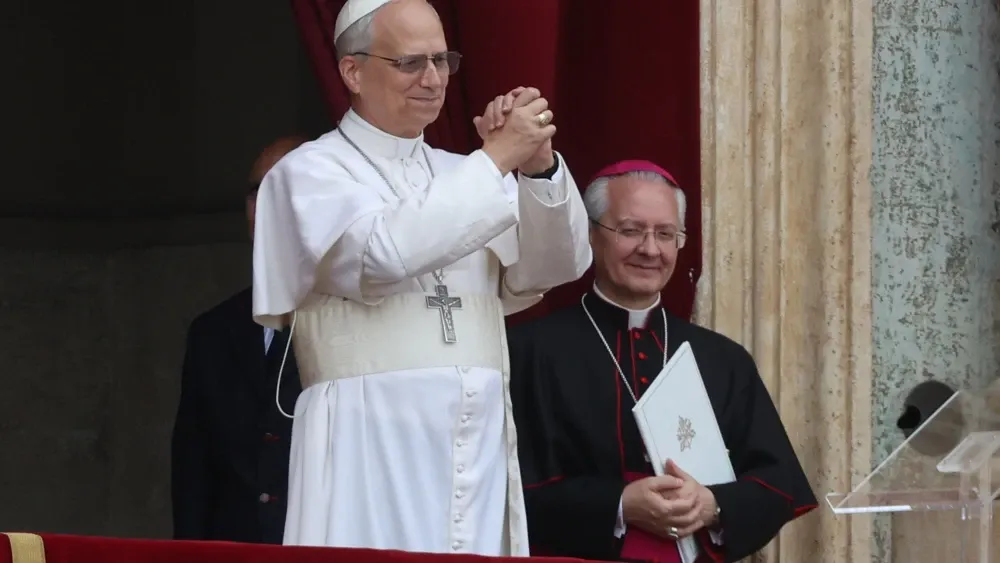 By: Elizabeth Samson In the wake of the October 7 anniversary, the Vatican criticizes Israel, ignoring the true perpetrators of Palestinian suffering. Why it matters: The Vatican's accusations of "massacre" against Israel distort the reality of asymmetric warfare and international law. Legal misinterpretations: The Vatican's claims of disproportionality ignore international law's complexities. Moral implications: The Vatican's stance absolves Hamas of its atrocities, undermining its own credibility. The bottom line: The Vatican's rhetoric endangers both Israeli and Palestinian lives, promoting a skewed narrative that supports terrorism. To read the full article, click here. | | Texas Attorney General Accuses Muslim Residential Project of 'Fraudulent' Conduct 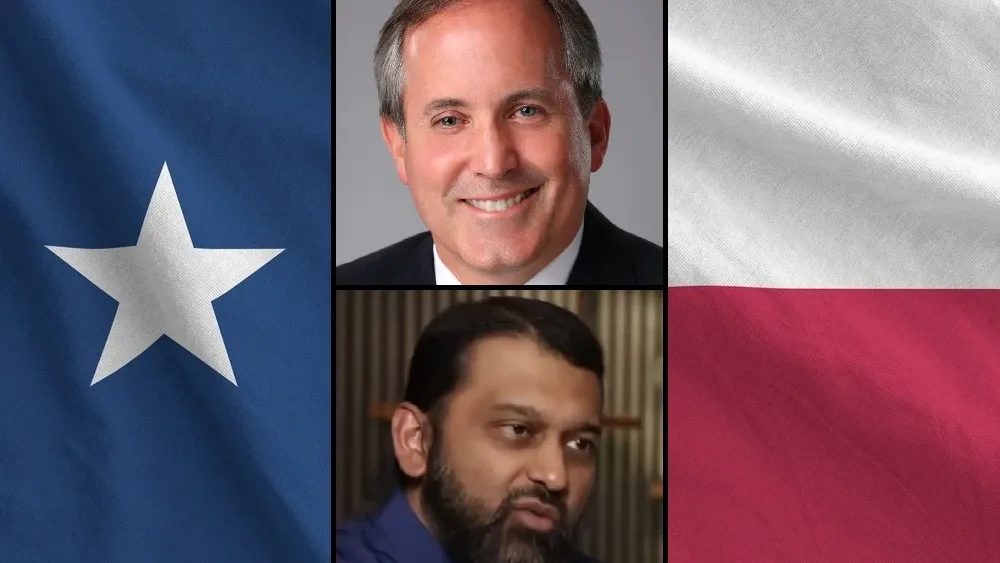 By: Dexter Van Zile Texas Attorney General Ken Paxton is intensifying scrutiny on the East Plano Islamic Center (EPIC City), questioning its true motives and potential as an Islamist foothold in the U.S. Why it matters: Advertised as a community project, EPIC City faces allegations of being a covert "Islamist enclave," raising security alarms. -
The project, backed by EPIC's development arm, Community Capital Partners, is accused of "fraudulent conduct" and securities violations, suggesting deeper issues. -
EPIC's leadership has campaigned for the release of Aafia Siddiqui, an al-Qaeda operative convicted in 2010 for attempting to murder U.S. personnel in Afghanistan. -
Siddiqui, who demanded that Jews be barred from her jury and accused unnamed Jews of orchestrating her prosecution, received an 86-year prison sentence for planning a "mass casualty attack" against Americans and allied forces. Qadhi's radical influence: Yasir Qadhi, a controversial figure known for inflammatory rhetoric, raises red flags with his past endorsements of extremist ideologies. Political stakes: With Governor Greg Abbott calling for action against "Sharia cities," the project faces heightened scrutiny amid fears of radicalization. The bottom line: Earlier this year, the Texas Commission on Environmental Quality ordered cessation of construction until required permits are obtained. To read the full article, click here. | | Controversial Shiite Mosque in Canada Holds Nasrallah Memorial 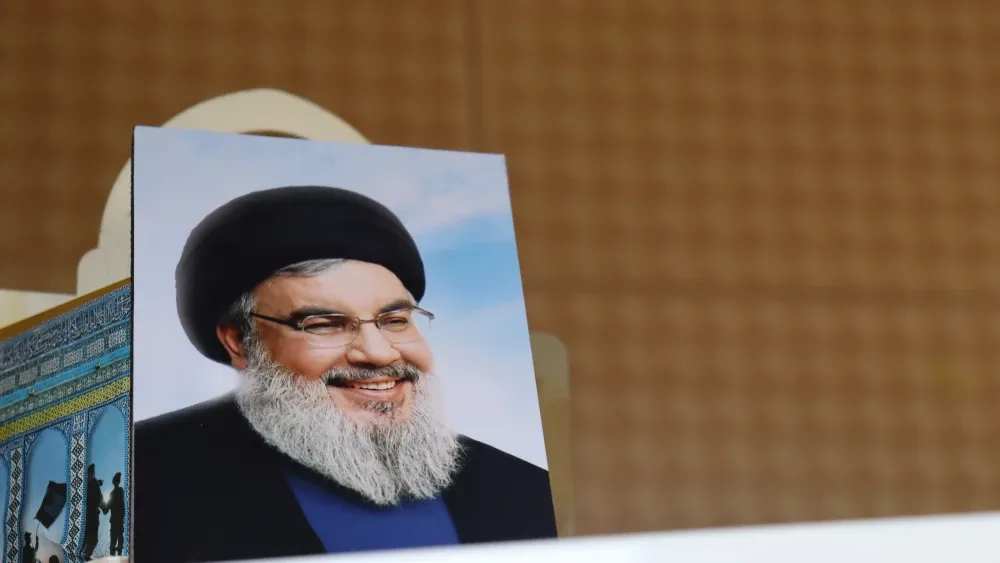 By: Joe Adam George Ahlul Bayt Mosque in Windsor, Ontario, hosted a memorial for Hezbollah's Hassan Nasrallah, raising concerns about the endorsement of Islamist extremism within Canada. Why it matters: Such events at the mosque legitimize terrorist groups like Hezbollah and Iran's IRGC, both designated terrorist entities in Canada. Radical influence: Mohammed al-Latif, a mosque member, promotes extremist leaders and defends the event as protected under Canadian law. Threat to society: The Canadian Antisemitism Education Foundation warns that youth indoctrination can lead to antisocial behaviors and extremist sympathies. -
The Ahlul Bayt Mosque's repeated glorification of terrorists underscore an urgent reality: the threat of Islamist extremism to Canada is not confined to online spaces or foreign battlefields. -
It is taking root in local institutions, exploiting legal protections and societal tolerance to normalize hatred and division. The bottom line: Canada must safeguard its pluralistic democracy by confronting the normalization of extremist narratives. To read the full article, click here. | | U.K. Court Overturns 'Blasphemy' Verdict Against Qur'an-Burning Activist  By: Jules Gomes In a landmark ruling, a U.K. court overturned the conviction of Hamit Coskun, who burned a Qur'an, emphasizing the protection of free speech. Why it matters: This decision challenges Islamist efforts to criminalize what they consider blasphemy and reinforces the right to express controversial views. -
Justice Joel Nathan Bennathan declared there is no blasphemy offense in U.K. law, defending the right to express views that "offend, shock, or disturb." Legal implications: The court clarified that expressing hostility towards a religious group isn't a crime unless accompanied by another offense. Political response: Shadow Justice Secretary Robert Jenrick calls for a review of the case, opposing the criminalization of heresy. The bottom line: The ruling reinforces the U.K.'s commitment to free speech, even when it challenges religious sensitivities. To read the full article, click here. | | Thank you for relying on the Middle East Forum for up-to-date analyses and reporting. If you enjoyed this issue of the MEF Dispatch, please forward it to a friend. We invite you to use the comments feature to let us know your thoughts on the Dispatch and the issues we cover. Sincerely, Winfield Myers
Managing Editor, Middle East Forum
Director, Campus Watch | | | | Was this edition useful?  

Your email will be recorded and shared with the sender |        MEF, an activist think tank, deals with the Middle East, Islamism, U.S. foreign policy, and related topics, urging bold measures to protect Americans and their allies. Pursuing its goals via intellectual and operational means, the Forum recurrently has policy ideas adopted by the U.S. government.
Copyright © 2024 Middle East Forum, All rights reserved.
Our mailing address is:
Middle East Forum
1650 Market Street, Suite 3600
Philadelphia, PA 19103 | | | | | Powered by 
| | This email was sent by Middle East Forum via Axios HQ | | | |
0 коммент.:
Отправить комментарий